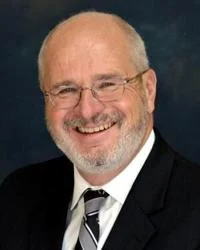Censors, Not Father Nor Mother, Know Best
They see themselves as our protectors, a shield that prevents harmful or dangerous ideas or pieces of art from finding their way through our moral and ethical defenses. They keep books and music and paintings away from us for our own good.
Because they consider their hearts and their motives to be pure, they take umbrage when we suggest that maybe, just maybe, we can be trusted to make up our own minds.
Or parent our own children.
Or develop our own tastes.
How, how, how can we be so ungrateful? How can we not appreciate the good they have done for us by making books and songs and art harder for us to find?
That’s what is behind the dustup with the Hamilton East Public Library, which has made national news by moving many popular young adult—or YA—books to the adult section. The library did so at the direction of the Hamilton East Public Library Board, which considered the works inappropriate for young people.
Among the books moved was John Green’s “The Fault in Our Stars,†a novel that has proved to be a touchstone for young readers since the day it was published. Green, who makes his home in Indianapolis, protested when he heard about the move.
He said he wouldn’t be caught “alive or dead†in Fishers until the policy was changed.
I know John Green—not well but well enough to realize he is one of the most decent guys around.
Once, I asked a favor of him. He just had been a guest on a radio show I hosted.
One of my daughter’s friends had been diagnosed with cancer. Cancer figures prominently in the narrative of “The Fault in Our Stars.â€
I asked Green to sign a copy of the book for my daughter’s friend. He did more than that. He wrote a note to her inside the book, one filled with compassion and encouragement.
After that, I learned that such graciousness and generosity were common for him. He was, and is, devoted to young people, particularly those who read his books. He takes both their lives and their troubles seriously, which may be the reason that “The Fault in Our Stars†has sold, at last counting, nearly 25 million copies worldwide.
But because Green acknowledges in his work that teenagers think about and occasionally even have sex, the board members—not the librarians, who are trained to guide readers of all ages, but the board members, who are not—decided his work was not appropriate.
And now those same board members cannot understand why Green has raised a ruckus about their policy.
They cannot figure out why a man who has devoted his career and his art to writing for and helping young people might take offense at the accusation that his books were bad for those same young people.
A few of the board members’ supporters even have suggested that Green took issue with the library board’s policy just so he could sell some more books.
Yeah, right.
A guy who has sold more than 40 million books worldwide and has had several of his novels turned into successful movies really desperately needs the help of a public library in central Indiana so his work can find an audience.
No, what it comes down to is this.
Because the board members of the Hamilton East Public Library are pure of heart, they know better than John Green what young need.
They also know better than the 40 million young people who bought Green’s books.
Or their parents.
Or their teachers, who have devoted years of training to understanding how young people think and live.
Or the librarians, who have undergone rigorous schooling and preparation to help them serve readers.
The library board members, untutored and untrained though they may be, are better suited to make decisions about what we read and what our children read than we or anyone else could be.
Because they are pure of heart and have nothing but the best of intentions.
As censors always do.
FOOTNOTE: John Krull is director of Franklin College’s Pulliam School of Journalism and publisher of TheStatehouseFile.com, a news website powered by Franklin College journalism students. The views expressed are those of the author only and should not be attributed to Franklin College.






Moving a book from one section to a different section is now “censorship”? And this person is head of a journalism school, correct? Perhaps, rather, a propaganda school.
This kind of response is flat out disingenuous, and VICTORY knows it.
I call total BS!!!!!!!
Make no mistake.
There is a disturbing trend among people like VICTORY and the Trump fans community, invading the FAMILY HOME telling Parents what they can and can’t do for their children’s health care, invading WOMEN’s LIVES and telling them what they can and can’t do for their own reproductive health choices, and here invading our libraries to do the same kind of work.
Nazi police by a different name. They are.
Islamic Morality police by a different name. They are.
Give them power? They WILL NOT STOP. They WILL tell you what YOU can, and cannot, do in your Family, sooner rather than later.
KEEP GOVERNMENT AND THE STATE OUT OF YOUR FAMILY.
Stop this crap.
Have you read it?
Oops John. The librarians were the ones who made the mistake.
Here’s an idea, post the portion of the book in question. Funny you didn’t quote it. Or would it have been censored by the CCO?
From Wikipedia:
Hazel Grace Lancaster, a 16-year-old with thyroid cancer that has spread to her lungs, attends a cancer patient support group at her mother’s behest. At one meeting, Hazel meets a 17-year-old boy currently in remission named Augustus Waters, whose osteosarcoma caused him to lose his right leg. Augustus is at the meeting to support Isaac, his friend who has eye cancer. Hazel and Augustus strike a bond immediately and agree to read each other’s favorite novels. Augustus gives Hazel The Price of Dawn, and Hazel recommends An Imperial Affliction, a novel about a cancer-stricken girl named Anna that parallels Hazel’s own experience. After Augustus finishes reading her book, he is frustrated upon learning that the novel ends abruptly without a conclusion, as if Anna had died suddenly. Hazel explains the novel’s author, Peter van Houten, retreated to Amsterdam following the novel’s publication and has not been heard from since
A week later, Augustus reveals to Hazel that he has tracked down Van Houten’s assistant, Lidewij, and, through her, has managed to start an e-mail correspondence with Van Houten. The two write to Van Houten with questions regarding the novel’s ending; he eventually replies, explaining that he can only answer Hazel’s questions in person. At a picnic, Augustus surprises Hazel with tickets to Amsterdam to meet Van Houten, acquired through the story’s version of the Make-A-Wish Foundation, “The Genies”
Upon meeting Van Houten, Hazel and Augustus are shocked to discover that he is a mean-spirited alcoholic. Horrified by Van Houten’s hostile behavior towards the teenagers, Lidewij confesses to having arranged the meeting on his behalf. Lidewij resigns as Van Houten’s assistant and takes Hazel and Augustus to the Anne Frank House, where Augustus and Hazel share their first kiss. Later that night Hazel and Augustus lose their virginity to one another in Augustus’s hotel room, confessing their mutual love for each other
The next day, Augustus reveals that his cancer has returned. Upon their return to Indianapolis, Augustus’s health continues to deteriorate, resulting in him staying in the ICU for a few days. Fearing his death, Augustus invites Isaac and Hazel to his pre-funeral, where they give eulogies. Augustus dies soon after, leaving Hazel heartbroken. Van Houten shows up at Augustus’s funeral to apologize to Hazel
Hazel learns that Augustus had written an obituary for her, and reads it after Lidewij discovers it amidst Van Houten’s letters. It states that getting hurt in this world is unavoidable, but we do get to choose whom we allow to hurt us, and that he is happy with his choice, and hopes she likes hers too. The book closes with Hazel stating that she is happy with her choice
Yeah, clearly a dangerous book for youth…….NOT
Hitler BURNED BOOKS from schools, libraries he “thought about, and decided they gave too much power to his political opponents, and not enough power to HIM.”
The Nazi Party, with it’s charismatic mad-man leader Hitler, started by claiming he was removing these books from libraries because they represented a threat to youth, and the country’s culture as HE THOUGHT it should be.
GLEN KISSEL, JERRY WIRTH and VICTORY are already advocating removing books from one section to another. How many steps away from REMOVAL and BURNING are these folks?
Comments are closed.